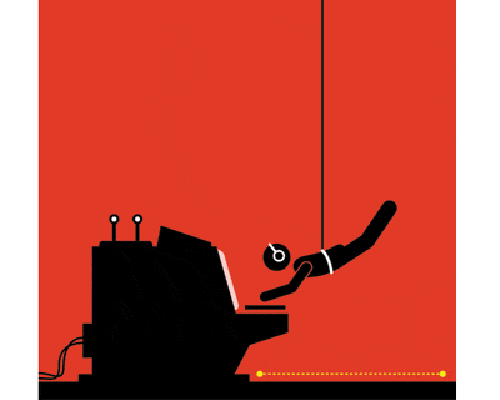Jordan, you’re a trial lawyer focusing on trade secret law, consumer class action defence, financial services, and entertainment litigation. Why, out of all those areas of practice, did you choose trade secret law as the subject for a podcast?
Because trade secrets drive some of the most innovative businesses. Innovation and the evolution of products and services fascinate me, and some companies are in the best position to take on our biggest problems. Green energy and plant protein businesses come to mind, but there’s an endless list of companies using trade secrets to solve problems and improve the world.
How difficult is it to take a complex subject like trade secret law and talk about it in a way that is engaging?
It’s not too difficult if you find the subject interesting and understand it. And once you do, it’s easy to present in a straightforward way that people can understand. A trade secret is just something that’s valuable to its owner and others because it’s secret and the owner takes reasonable steps to maintain it as such. When you’re able to boil a concept down to its simple point, it’s easy to explain and discuss.
Having had the inspiration for the show, what are you ultimately hoping to achieve with it?
I created this podcast because I want to give people who should (or must) be familiar with trade secret law an easy way to stay current at a high level (insert disclaimer that we are not providing legal advice here). Staying current can be tedious, like it is for me. Half of the process is filtering out cases or developments that don’t really add to what we already know, then deciding which ones are worth talking about.
Once we isolate the important material, we learn it, discuss it on the show, then give the listeners hard takeaways. The podcast forces me to do the homework and the listener can learn on a 20-minute commute what it took me a few hours to distill. So ultimately, I’m trying to achieve value for our listeners and myself, including, hopefully, relationships with some of the listeners.
Who do you see as your core listeners? Is it just clients or do you expect other private practice lawyers and law students to subscribe too?
Business decision-makers and in-house counsel whose jobs include being familiar enough with trade secret law to protect their trade secrets. Some businesses don’t even know they have trade secrets, which often are their most valuable assets. Others are very aware, but don’t have an easy way to stay current on the law. People don’t have a lot of downtime these days, and if they can learn critical information on a short commute or at the gym, when they wouldn’t otherwise be reading, maybe they will.
Podcasting is a great medium and I saw a need for consistent, concise audio content on this really important subject. And while I had businesses and in-house counsel primarily in mind when I created the podcast, yes, I know lawyers and students listen too, which is great. The more the better.
What listener feedback have you had so far?
It’s all been positive, including from listeners that the podcast specifically targets. We ask for feedback at the end of each episode, because we always want to improve, and welcome constructive criticism.
Are there plans by your fellow shareholders to roll this out to other practice areas of the firm?
The Trade Secret Law Evolution Podcast is relevant to a lot of practices, including employment, corporate and IP (and litigation, obviously).
What level of tech are you using to produce the podcast? Was it a significant investment?
I work with an incredible marketing and production team that chose our equipment, and it is very high-quality (although, I understand, not terribly expensive). We each have a microphone and headphones, and one of my IT colleagues is in charge of the sound mixer. Our producer helped us find the music, edits and makes each episode sound seamless and professional. There are about eight people on this team without whom this would not be possible. You know who you are. Thank you!
How much time does it take to prepare each episode?
About two and a half hours, not including the recording itself, which takes between a half hour and 45 minutes. We work with our Knowledge Solutions team to identify trade secret cases from around the country and efficiently determine which ones are worthy of discussion. Learning those cases and outlining each episode generally takes around two hours, which we do approximately every two weeks.
What are your plans for the future of the podcast?
I want a critical mass of episodes that meet the need I saw when we created the podcast for easily digestible summaries and takeaways on developments in this law. Eventually, I would like to mix in some guests perhaps clients or other trade secret owners discussing their business, what trade secrets mean to them, and how they protect them.
For you, what’s the best thing about podcasting?
Gaining and giving value at the same time. This podcast requires constant learning, which makes us more valuable, and we package what we learn in commute-length episodes for our listeners.
What’s the biggest mistake you can make when it comes to producing a podcast?
One, not releasing episodes consistently. Inconsistency equals death for a podcast. Two, sounding too rehearsed. My original co-host, Jena MacCabe, and I call it being too ‘read-y’. She’s now at the Ninth Circuit for a year. I think it’s important to sound natural and conversational, so that people like listening to you. That just takes a little practice. And, obviously, your substance and communication better be on-point.
What other advice would you give to lawyers thinking of launching their own podcast?
Find a need and meet it. I created our podcast because I wanted it, presumably others do, too, and it didn’t exist. If you’re not meeting a need, you may just be internet noise. And stay consistent.
Listen to the pilot episode here: https://www.gtlaw.com/en/insights /2019/6/trade-secret-podcast


